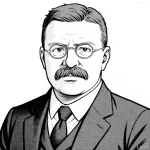“What most persons consider as virtue, after the age of 40 is simply a loss of energy.”

- November 21, 1694 – May 30, 1778
- Born in France
- Philosopher, man of letters, historian
table of contents
Quote
“What most persons consider as virtue, after the age of 40 is simply a loss of energy.”
Explanation
This quote reflects Voltaire’s view on aging and the transformation of desires and behaviors over time. He suggests that what is often seen as virtue—such as restraint, moderation, or careful decision-making—may, in reality, be the result of physical and emotional decline, particularly after reaching middle age. Voltaire implies that as people age, they may no longer have the energy or inclination to indulge in excesses or impulses, and what might appear as virtuous behavior is actually a natural consequence of reduced vitality.
In modern contexts, this idea can be interpreted as a reflection on the changes people undergo as they grow older. As individuals age, they often become more focused on stability and health, which may lead them to prioritize long-term goals over short-term pleasures, but this shift is not necessarily a result of moral superiority—rather, it’s driven by the inevitable slowing of physical and mental energy. Voltaire’s quote challenges the idealization of older age, suggesting that what society often praises as wisdom or virtue may be more about physical limitations than enlightened choice.
A specific example of this principle can be seen in how older generations are sometimes perceived as more conservative or cautious in their behavior. While younger people may engage in more adventurous or risk-taking behavior, older people tend to be more cautious, not necessarily because of moral virtue but due to a decrease in physical or mental capacity for reckless actions. Voltaire’s words serve as a reminder that aging often brings practical changes in behavior, which may be misinterpreted as virtue.
Would you like to share your impressions or related stories about this quote in the comments section?




